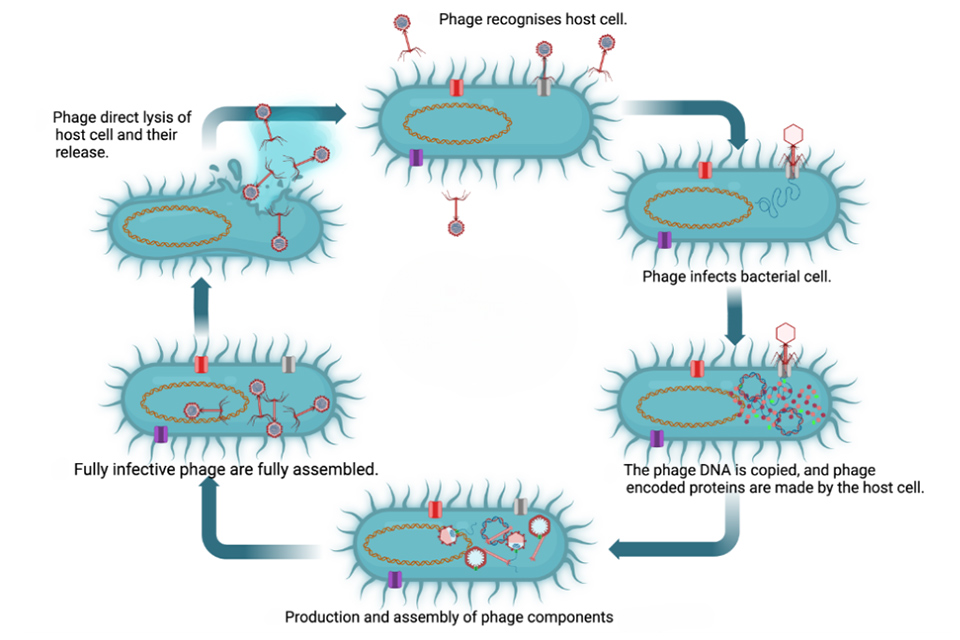Phage therapy
Learn more about phage therapy - what phages are, how they work, and their potential to treat antibiotic-resistant infections.
What are phages?
Phages, or bacteriophages, are viruses that infect and kill bacteria. They are the most common biological entities on Earth and can be found anywhere bacteria exist.
Phages are highly specific. There are billions of different phages in existence, but each specific type of phage will infect a specific type of bacteria. Importantly, phages infect bacterial cells; they do not infect human cells.
How do phages work?

- A phage recognises a specific bacterium and attaches itself to the surface
- The phage infects the bacterial cell by injecting its DNA into the cell
- The phage uses the bacterial cell’s DNA replication machinery to make many copies of itself
- The phage then causes the bacteria to break open, killing the bacteria and releasing many more phages that will go on to infect and kill more bacteria.
How could phages help people with cystic fibrosis?
Phages can be used to treat bacterial infections – this is called phage therapy.
Most importantly, phage therapy can treat bacteria that have developed resistance to antibiotics (known as antimicrobial resistance), which can be a common occurrence in infections in the lungs of people with cystic fibrosis.
Has anyone ever been treated with phage therapy?
Globally, there have been cases where phage therapy has been used to successfully treat bacterial infections including multiple-resistant strains. These have either been through clinical trials or personalised treatment. Some of these cases have been people with cystic fibrosis who had chronic lung infections.
In the UK specifically, there has been one case so far of phage therapy being given to a person with cystic fibrosis. In some countries, such as Georgia and Russia, phage therapy has been used for decades - with thousands of people successfully treated in Georgia alone.
Is phage therapy available in the UK?
At the moment, phage therapy is not a routine treatment available in the UK. It can be available as an unlicensed medicine on a named patient or compassionate basis for some people, if other treatments have failed.
Some companies are developing phage therapy products that are currently undergoing clinical trials - including one targeting Pseudomonas aeruginosa, a common cause of lung infections.
As phage therapy is developing and changing quickly, there are still several challenges to overcome. These include:
- Improved understanding of regulation for either personalised phage therapy or licensed phage products. This will help people understand how and when phage can be used
- Improved manufacture of phages in the UK, ensuring phages are produced to the high standard we need
- A better understanding of how phages work in the lungs of people with cystic fibrosis, to help design the most effective treatment approaches.